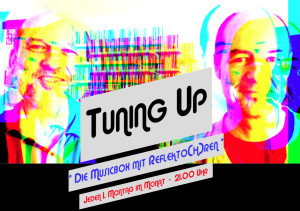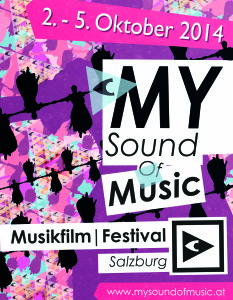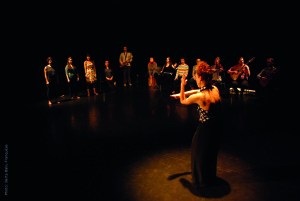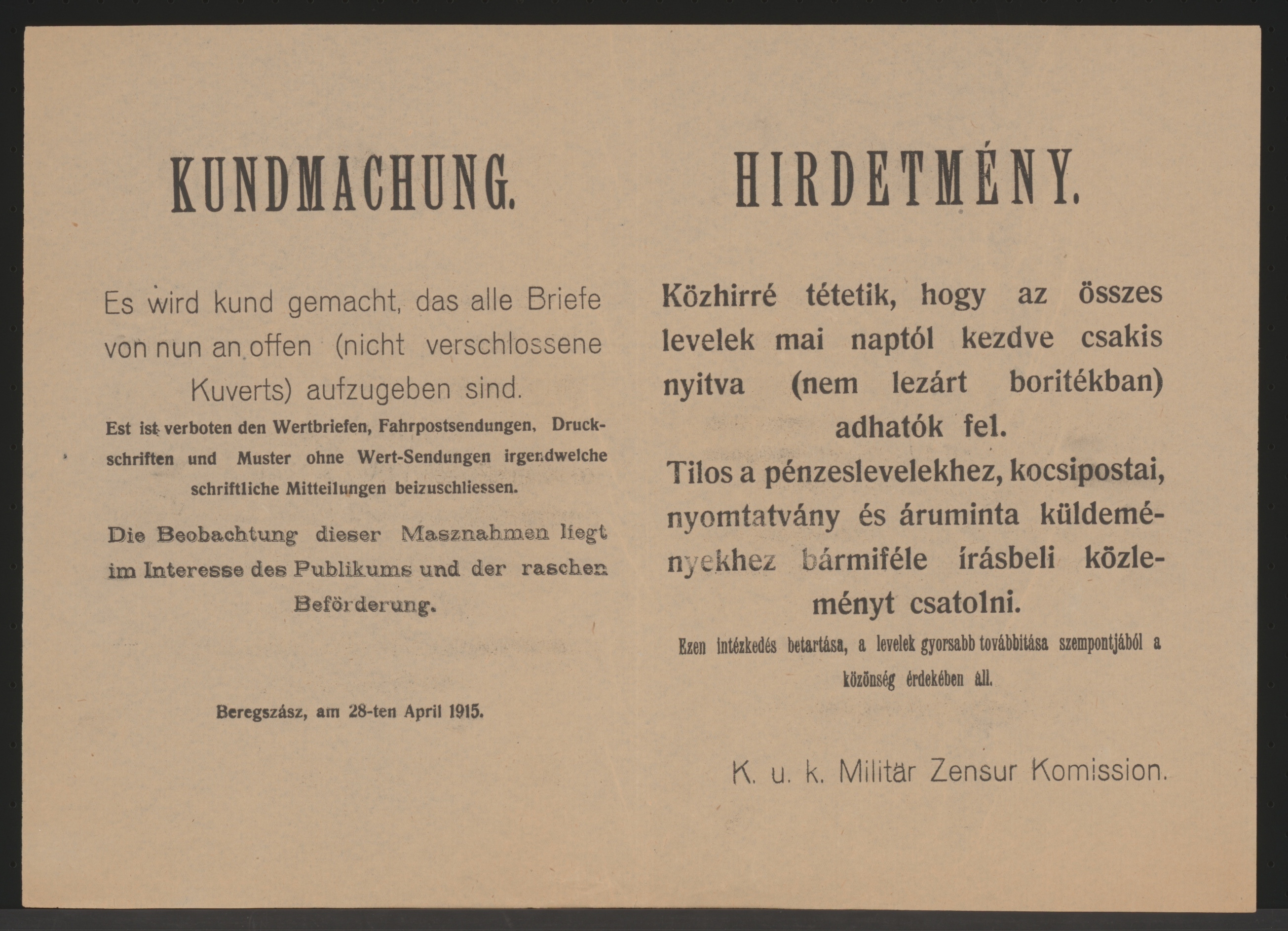Nur noch wenige Stunden – und „Tuning Up“ ist „on air“: Montag, 6. Oktober, um 21.00 Uhr auf der Radiofabrik. Erik & Paul haben das gesamte Wochenende noch an der Setlist für ihre erste Sendung gefeilt … UND: wenn Zeit bleibt, gibt es neben der fixen Rubrik „This month´s tune – TMT“ sogar noch eine Draufgabe: das Geräusch des Sommers.

Archiv des Monats: Oktober 2014
3. Oktober: Im Gespräch mit Heinz Schoibl
Er ist Sozialpsychologe (Dr. phil.) und nicht nur in Salzburg für sein persönliches und
wissenschaftliches Engagement in den Bereichen Sozialpolitik, Jugend und (offene) Jugendarbeit, Armut und Armutsmigration, Wohnpolitik und sozialer Wohnungsmarkt, Wohnungsnot und Wohnungslosenhilfe bekannt. Als selbstständig Forschender und Beratender (helix austria) zeichnete er jüngst mit der Studie „Notreisende und Bettel-MigrantInnen in Salzburg“ ein ernüchterndes Bild der schwierigen Lebenssituation bettelnder Menschen in unserer Stadt und wird nicht müde, kritisch und fachkundig in von Vorurteilen geprägte politische wie mediale Diskussionen einzugreifen. Wir freuen uns außerordentlich auf ein spannendes Gespräch mit Heinz, den wir unbedingt zu den Motiven für seine Arbeit, den Quellen seiner Kraft und Motivation und zu seinen Wünschen und Hoffnungen für das Miteinander in einer von Ungleichheit und sozialen Wettbewerb geprägten, globalisierten Welt befragen wollen.
Ohren auf und einstweilen einen schönen Tag,
Su & Karo
FVONK Dich FREI – Der Radiotalk mit AlltagsheldInnen. Heute im Studio: Sozialpsyhologe und Forscher Dr. Heinz Schoibl von helix austria. Freitag 03.10.2014, 18.00-19.00 Uhr auf der Radiofabrik, 107,5 und 97,3 MHz, und im Livestream http://radiofabrik.at/rafab_stream_low.m3u
My Sound of Music @ Radiofabrik
Am Donnerstag (2.10.) ist es so weit. Das „My Sound of Music“ Festival startet in Salzburg. Mit dabei sind viel verschiedene Programmhighlights rund um die Themen Klassik, Human Rights, Sowjet-nOSTalgie und Sex in der Volksmusik. Passend dazu gibt es Konzerte, Filmvorführungen und Workshops zu erleben. Außerdem gibt es am Abend des 4. Oktober eine große Konzert- und Clubnacht in der Arge Kultur.
Das Magazin um 5 präsentiert dazu in der Sendung vom 1. Oktober einen ersten Programmüberblick mit allen Hintergrundinfos. Und wer trotz allem nicht dabei sein kann, für den gibt es das Beste am Dienstag den 7. Oktober im Magazin um 5 zum nachhören.
Unter folgendem Link könnt ihr außerdem ein Interview mit 2 der Veranstalterinnen, Selina Nowak und Teresa Meikl, nachhören:
Also, ob im Kino, im Konzertsaal, auf der Straße oder auf der Radiofabrik.
Willkommen bei My Sound of Music!
„Über dem Krieg darf ich nicht mehr schreiben…“
[iframe src=“http://cba.fro.at/270150/embed?&socialmedia=true&title=false&subscribe=true&series_link=true“ width=“100%“ height=“250″ style=“border:none; width:100%; height:250;“]
In Stimmen aus den Schützengräben #14 we introduce a very important theme: postal censorship. Huge and costly efforts were made by the belligerents to keep the morale high, both on the frontline and in the homeland (see episode #4). Mail was one of the few comforts a soldier could have on the frontline, and often the most cherished. Letters, however, could also convey classified information or undermine the moral on the homefront. For that reason, post censorship occurred in many of the countries involved in the war.
The first document of this week is an original interview with Captain Howard B. Ward (see episode #2), recorded in 1982. In the selected passage, Howard explains how the letters written by British soldiers on the Western Front were censored. Every letter had to be checked by an officer to ensure it didn’t contain classified information, such as the position of the soldier. After reading the letter, the officer would seal it and sign the envelope. Only officers were granted a special priviledge: their letters were sent to a post office behind the lines, where only a small number was randomly opened and checked. The officers had to give their word that their letters didn’t contain any classified information, and if they were found guilty they would be court-martialled.
The full interview is available at: www.europeana.eu/portal/record/2020601/attachments_66347_4980_66347_original_66347_mp3.html
The second document of the week is a short letter from German soldier Johann Görtemaker (see episodes #5, #12 and #13), dated 4th of May 1917. He doesn’t explicitly mention the censorship but writes: „I am not allowed to write about the war anymore“. Soldiers were well aware of postal censorship, and most of the time they would write very simple letters to make sure they would reach the families. Censorship, however was not always effective at discouraging the soldiers or destroying confidential information. Many letters managed to slip through the net, and they are today a vivid testimony of those tragic times.
Görtemaker correspondence is available at: http://www.europeana1914-1918.eu/de/contributions/462
The third document of this week is a passage of a letter written by French soldier Henri Bouvard on the 3rd of December 1917. He urges his wife not to write about war in her letters, to make sure they reach him. The censorship examined both incoming and outgoing mail. In the best-case scenario, the unauthorised parts were covered with black or purple ink. Often, however, the whole letter was destroyed.
The rules were very strict, and applied not only to military information but also on feelings and impressions of the war. In many cases censorship rejected passages in which soldiers related the horrors of war, because they would endanger the propaganda. The morale of the civilians was as important as the morale of the troops, for several reasons. Civilians not only encouraged and their relatives and friends on the frontline, but also supported the state economy subscribing to war bonds. This could only be possible if they believed in a quick victory.
Henri Bouvard’s letter is reproduced in „Paroles de poilus : lettres et carnets du front 1914 -1918“ by J.P. Guéno, page 92.
The last document of this week is a passage from Attilio Frescura’s „Diario di un imboscato“(see episodes #2 and #3 ). In may 1917 he was assigned for a few day to censorship duty. In the letters he found many funny mistakes and weird expressions which he copied in his journal. He also witnessed all the vile practices of human soul, and could unmask through the lines the lies and infidelity of wives and husbands. Frescura’s war journal is available at: teca.bncf.firenze.sbn.it/ImageViewer/servlet/ImageViewer?idr=BNCF00004006672#page/75/mode/1up
-Credits-
Editing: Larissa Schütz , Matteo Coletta.
Commentary: Romana Stücklschweiger
Voices in this episode: Hannes Hochwasser als Johann Görtemaker, Matteo Coletta as Attilio Frescura, Howard B. Ward as himself.
Jingle:
Music: Gregoire Lourme, “Fire arrows and shields”
Concept: Matteo Coletta
Voices: Hanes Hochwasser, Matteo Coletta, Roman Reischl, L.J. Ounsworth, Norbert K. Hund.






